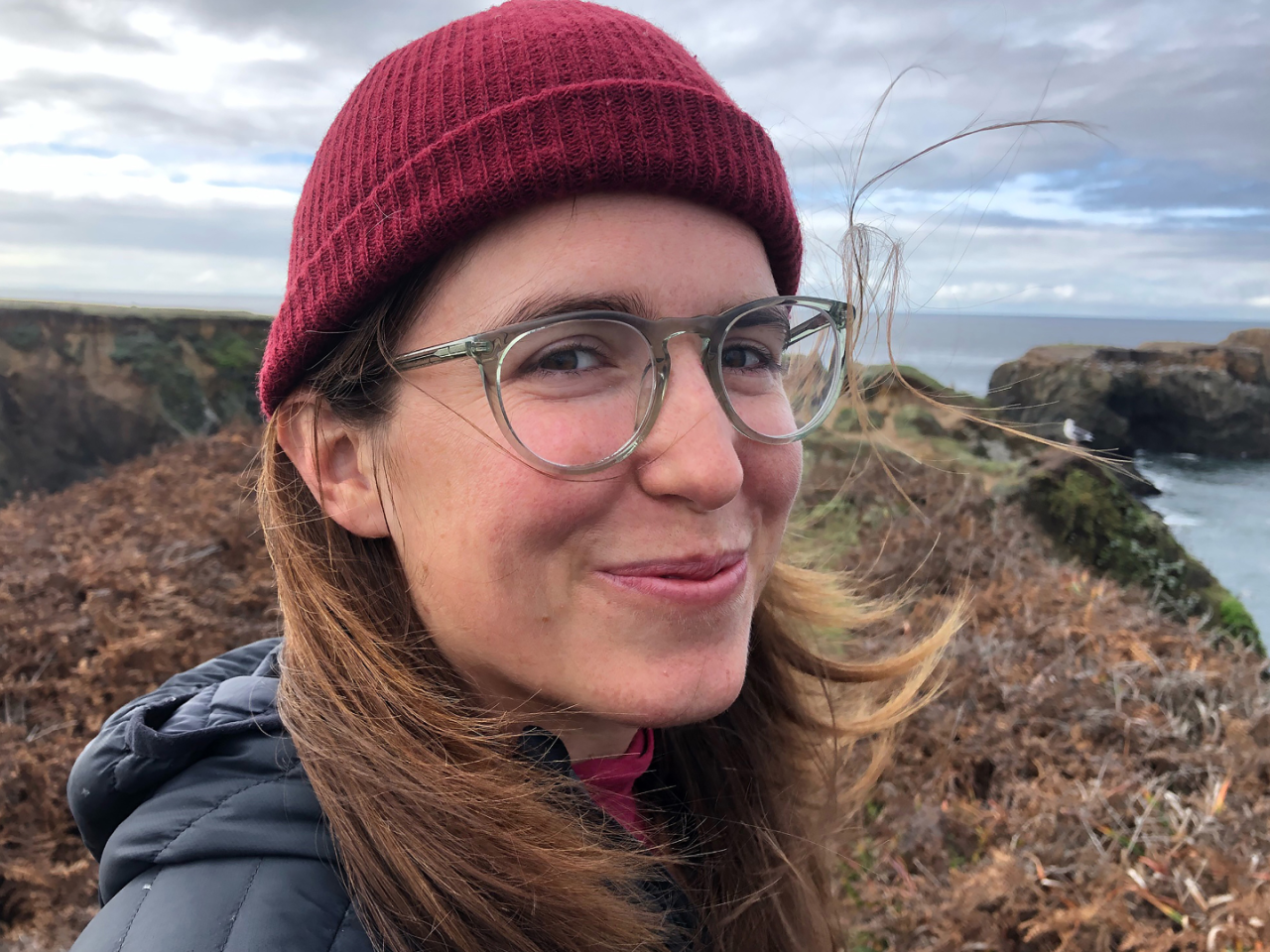Meet New Day: Amy Reid

I am a feminist filmmaker based out of Oakland, CA. I work with 16mm and video and make experimental ethnographic films that reflect on the intersections of gender, labor, and national identity in the US. These multi-year projects, often working closely with a group (long haul female truckers, quilters, and e-commerce sellers), premise upon collaboration, performance, and experimentation. Currently I am pursuing a doctoral degree in Film and Digital Media at the University of California, Santa Cruz. My dissertation, "Feminist Relationality in the Americas: Feminist Film Practices of the Long 1970s", investigates the prolific but neglected histories of film collectives, distribution models, and screenings of feminist experimental documentary practices in the long 1970s.
"All truckers are either running away or running to something.” In Long Haulers, through experimentation with 16mm, performative play on screen, and observational techniques, I rode with and filmed women truckers who had fled domestic violence, the stigmas of being formerly incarcerated, and mental health issues. Weaving together the stories of three truckers, Sandi, Lori, and Tracy, Long Haulers shares how each woman started trucking and what keeps them trucking. Through the course of the film, we get to know these women as they navigate the country. From shiny profiles of women-shaped ornaments to the male-filled diners, Long Haulers provides a window into the world of trucking that reflects the sexism that dominates the industry. Long Haulers aims to provoke audiences to question gender roles and the workplace, in trucking, and at large.
“Trucking is a lifestyle and not a job.” These were the sentiments that Sandi shared when I began driving with her on week-long shoots at the start of Long Haulers. Each woman I met, welcomed me into their sleeper cabins and hearts and shared how trucking has provided paths forward in their lives. The women I rode with have tenacity, courage, and resilience and I believe their stories deserve to be heard. The fact is, everything from the furniture in our house to the food we eat has most likely been transported by a truck driver. Their work makes not only one's personal life easier, but makes the United States function. By giving audiences insights into the physical and emotional labor of being a trucker and the added sexism that female truckers face, I want people to look at 18-wheelers differently the next time they're on the road. I also wanted to make a film that can redefine one’s relationship with work and question how as a filmmaker I could instigate play and experimentation in front of the camera. By prompting Sandi, Lori, and Tracy to speak from the voice of their trucks or to move like their trucks for the camera, I wanted to create opportunities where both the women and I can have a different perception of trucking.
As a crew of one, I rode with each of these women for a week at a time. I either slept in the top bunk of their sleeper cabin or head-to-toe with Sandi and her dog Shadow. I shadowed their lives on the road, eating at truck stop diners, waking up at 4 am to get on the road, and showering in truck stop bathrooms. I believe this project is different than other traditional documentaries on the subject matter of trucking because this was an intimate experience for both myself and Sandi, Lori, and Tracy. We each got to know each other when I rode with them, our habits and all. Though my voice is never included in the film, I think you can tell the vulnerability and willingness each of them gave to sharing aspects of their lives was because of that one on one experience we had.
Watch the trailer and learn more about the film: